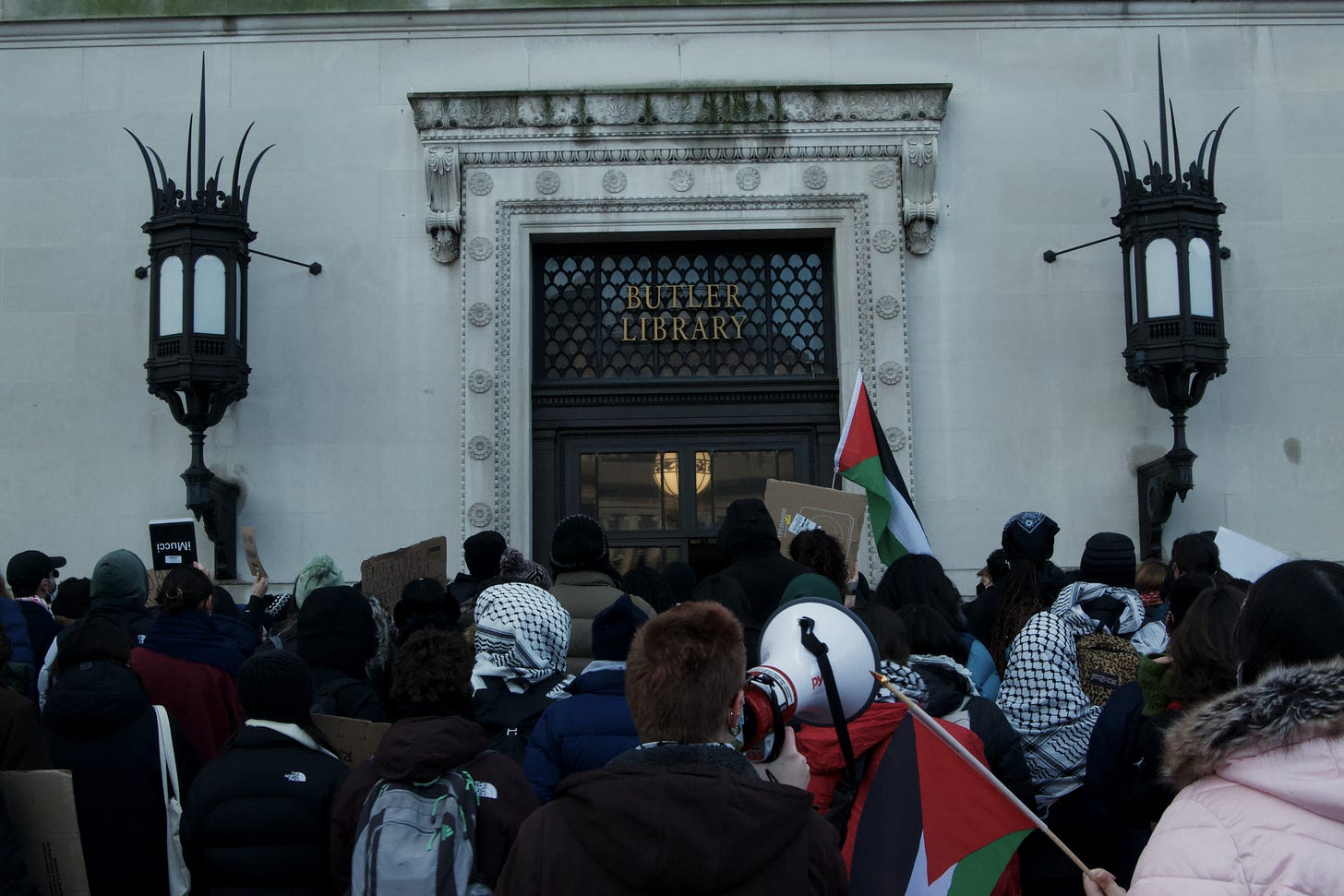The Turmoil at Columbia is Just the Beginning
After October 7, university administrators are finally taking note of their schools' free speech issues. It's about time, but mere statements aren't enough.

After contentious and even violent student protests at Columbia University attracted national attention following the outbreak of war between Israel and Hamas, University President Minouche Shafik sent a message to community members addressing the charged political climate on campus.
“Universities play a vital role in society by fostering critical thinking, scholarship, and, ideally, opening minds to different points of view…Columbia’s role is to create space for our scholars and students to fill with their own moral and intellectual conversations, an essential function in a world in which that space is narrowing,” Shafik wrote.
This was news to the countless Columbia students and faculty with heterodox beliefs who have endured years of censorship, harassment, and alienation from their peers while the university administration stood by and declared that there was nothing wrong with the school’s free speech climate.
The university’s neglect of its responsibility to cultivate an open environment for discourse has finally become clear. Following a chemical attack on pro-Palestinian protestors on campus, confrontations between Hilary Clinton and students in her class, the suspension of Columbia’s chapters of Students for Justice in Palestine and Jewish Voice for Peace, and an active Congressional investigation into antisemitism at Columbia, ask any Columbia student and they will tell you that the political climate on campus is at an all-time low.
While recent national headlines on Columbia’s campus speech environment are a surprise to many, in reality, the underlying culture has been years in the making. Columbia ranked dead last in FIRE free speech rankings, based on student surveys, for the 2022-2023 school year. It ranked 214 out of 248 schools in the 2024 rankings, and received a Yellow Light rating for policies that fail to protect student expression from administrative abuse.
A shocking 60 percent of students say it is at least rarely acceptable to shout down a speaker to prevent them from speaking on campus. A majority of students say they would be uncomfortable expressing their views on a controversial political topic in class, and a majority have self-censored at least once or twice a month. On a campus where liberals outnumber conservatives six to one, two-thirds of students say the school shouldn’t allow a speaker who has said that “Black Lives Matter is a hate group” on campus, while only 14 percent say the same for a speaker who has said that “The Second Amendment should be repealed so that guns can be confiscated.” Similar trends have been present since FIRE started conducting the survey in 2020.
I know students and other writers who have experienced this culture firsthand. Some have been called Nazis, racists, or worse for opinions that would be normal outside an Ivy League campus. One student had his room number and email doxxed on a bulletin board for writing an op-ed arguing that Western civilization as a concept existed. Bomb threats and death wishes directed toward students and campus publications have been posted online.
What were administrators doing amidst this free speech crisis? Not much. In 2019, then-President Lee Bollinger, a notable First Amendment scholar, wrote an article in The Atlantic titled “Free Speech on Campus Is Doing Just Fine, Thank You,” downplaying the issue as a “handful of sensationalist incidents.” Besides the public facade of First Amendment support Bollinger presented to new students and parents at yearly convocations, administrators on campus stuck to boilerplate policies and statements affirming that the university would not restrict expression.
It is a shame that it took war in Israel for administrators to realize that support for free expression on paper does not automatically translate to a student culture that embraces viewpoint diversity and respectful opposition.
Finally, the leadership is speaking out. “I remind students that there really is no such thing as ‘safe space’ when you think out loud with others,” the dean of Columbia College wrote. “Freedom of speech is a fundamental value we hold dear,” the provost wrote. The deans of the undergraduate schools condemned that people were “being targeted based on their religious identity or political speech.”
These affirmations are a step in the right direction. But if administrators care about building a campus culture where students feel free and safe to express their views, structural changes are necessary.
Universities could start by embracing free expression as a core value from the moment freshmen step on campus. Implementing free speech modules, such as those developed by FIRE, in new student orientations can instill an early appreciation for First Amendment principles and academic freedom. Rather than forcing repetitive diversity and inclusion videos down students’ throats, colleges can replace some of their social justice posturing with content like the Free to Speak docuseries, which can educate students on the history and the absolute necessity of free speech for our society’s survival. Administrators can also ensure students feel free to express their views in front of all professors regardless of their ideology. In addition to educating faculty on the best practices to promote respectful discourse in seminar classes, monitoring the campus climate through surveys like FIRE’s can reveal whether students are self-censoring less or becoming more tolerant.
The political turbulence we’re witnessing at some of our greatest universities is regrettable. At no other time have I seen students at my college act so polarized and hostile toward each other. But we can take this episode to realize the root causes of this free speech crisis and cultivate a new culture so that the next time students are confronted with a controversial event, violent protest and hate speech are replaced with productive discourse and mutual respect.
Mr. Du is the editor-in-chief of Sundial and a junior studying political science and economics. He is a Young Voices contributor whose writing has been featured in outlets such as USA Today, Reason, and National Review. Follow him on Twitter @jonasydu


